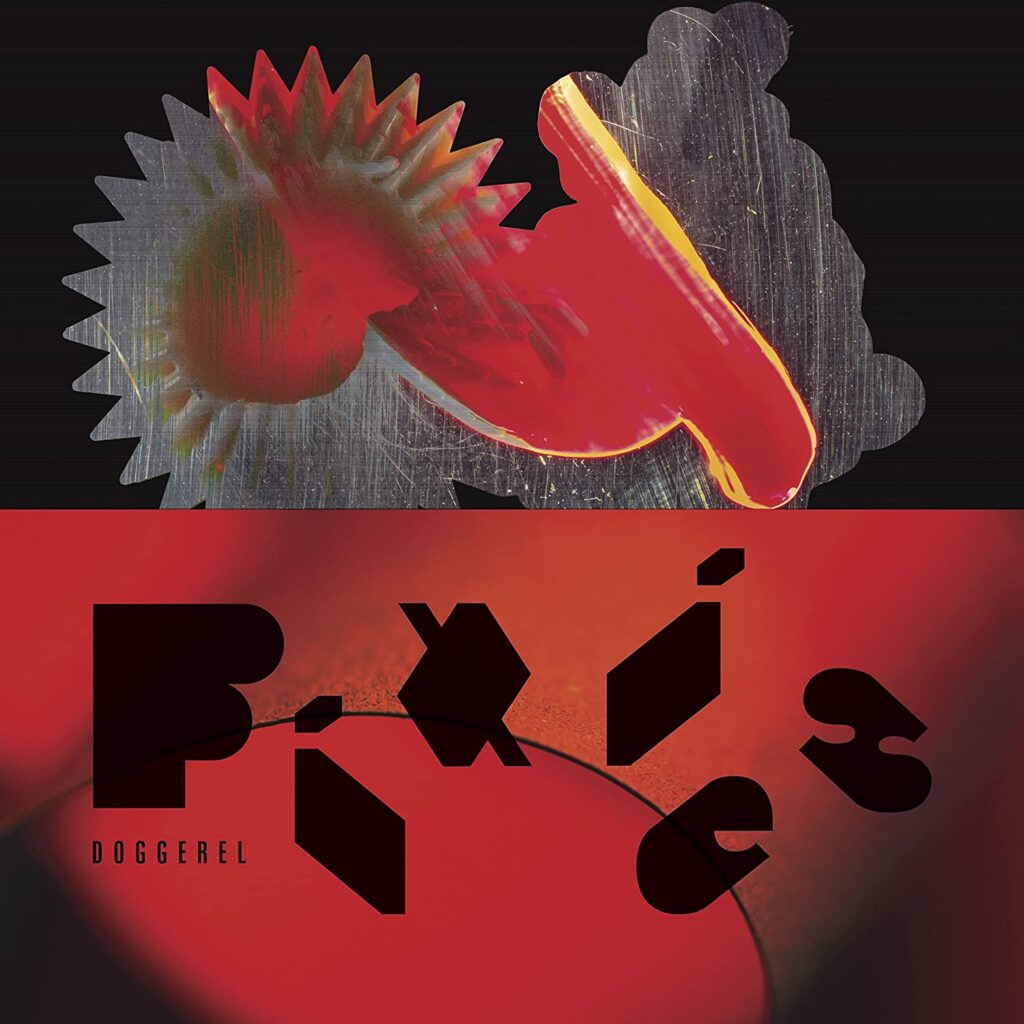
One of the most influential alternative rock bands of all time, Pixies recorded four near perfect albums between 1986 and 1991, before going their separate ways, following a tense tour playing support to U2. Despite Black’s insistence that no reunion would be possible, the band reunited in 2003 and, against all odds, followed up a hugely successful tour with a new album, 2014’s solid Indie Cindy. Head Carrier and Beneath The Eyrie followed in 2016 and 2019 respectively, with each one showing increased confidence and a desire to step outside of the template established on the first four albums, somewhat to the chagrin of fans who expected the band to simply repeat their earlier outings. Undeterred, the band only seemed to be gaining in confidence, with each album building upon the most successful elements of the preceding effort. And thus to Doggerel. With Tom Dalgetty (Ghost, Royal Blood) once more on board, Black Francis was quite happy to acknowledge that the band are no longer interested in simply unleashing frantic, two-minute punk songs – a facet of youth with which they no longer identify, and the result is an album that reflects the Pixies as they are now. Cleaner, and more obviously crafted, this is not an album for those who have never moved past Come On Pilgrim, but it is a record for those who like to grow alongside the artists that they love, and it has much to admire.
The album gets off to a strong start with the mid-tempo Nomatterday, a classic Pixies groove built around Paz Lenchantin’s creeping bass. With a spoken word verse building to a crunchy chorus, it sees Black Francis channelling his inner David Byrne, before snarling “don’t waste my time on you!” It might not have the fire and fury of, say Isla De Encanta, but it does suddenly change its mind halfway through, turning into a different song altogether, leaving you wondering if the CD has jumped to the second track without telling you and underscoring the fact that Pixies have lost none of their power to surprise. Next, Vault Of Heaven starts with a delicate guitar figure before turning into the sort of pop-infused surf-wave track that populated the underrated Head Carrier. We’re back into spoken word territory on Dregs Of the Wine, as Black Francis relates a debate over the best version of You Really Got Me, before leading the band into schizophrenic alt rock gem, complete with haunting backing vocals and a Lee Ranaldo undercurrent. Another track that taps into the Head Carrier vibe, Haunted House is simply a great Black Francis pop song, complete with a Bowie-esque chorus and a melody to die for. In contrast, Get Simulated is a rhythmic piece, stripped back and subtle, that recalls the majestic I Bleed, in its delivery. Keeping things varied, the first half concludes with the sweetly simple The Lord Has Come Back Today, which references Neil Young and recalls the gorgeous alt-pop of Belly.
Opening the second half, Thunder And Lightning has a misleading title, emerging not as an explosive blast of punk-infused rock, but rather a mid-tempo lament with varied vocal styles and some sweet lead work. The band up the ante on the gritty There’s A Moon On, a solid Pixies pop-rocker with a cracking chorus and some great sheets of guitar scarring the surface. Mixing things up again, Pagan Man sees Black Francis in story-telling mode over a backdrop that’s caught between Pixies-style surf and the jangly rock of early REM. Who’s More Sorry Now? has a whimsical country feel, not least because of the outré percussive elements thrown into the mix, while the dusty guitars recall Frank’s work with The Catholics. Heading back into heavier territory, You’re Such A Sadducee sees Frank playing with words and sounds over a gritty backdrop before building to a conclusion that is utterly enchanting. Finally, the title track brings the album to a close, a mere forty-two minutes after it began, with a sense of mystery and wonder. From the subtle percussive elements and creeping bass stabs to Black Francis’ largely spoken lyrics, it plays out like a long-lost Leonard Cohen b side, and it brings the album to an intriguing end.
The Pixies are the first to acknowledge that they are no longer the band that grabs you by the lapels and screams in your face and that’s fine – that music is there, untouchable, and still essayed live with characteristic fire. Those songs exist to tell us where the Pixies were, whereas Doggerel tells us where the Pixies are now and it’s no bad place to be. More experienced, more open to a range of styles, and yet still possessed of a gift to craft the most memorable of melodies, the Pixies of 2022 sound comfortable in each other’s company, and the result is an album that easily works its way into your consciousness. Not representing the Pixies as mature perhaps (that dreaded word that suggests a rush to the centre lane) – Black Francis is too uniquely eccentric for that – but seasoned, Doggerel is a catchy, beguiling and varied album that stands, arguably, as the best of the post-reunion albums to date. 8.5/10



